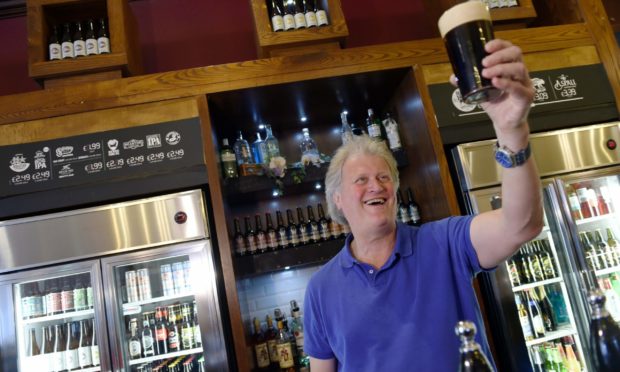Hospitality industry figures in the north-east have backed criticism of the UK’s VAT regime as the tax is set to rise to pre-pandemic levels.
Moves to raise VAT charged on hot meals in restaurants to 12% in September attracted the ire of bosses at JD Wetherspoons, who lambasted the UK Government for “Monty Python” VAT rules which it said will bolster supermarkets instead of the hospitality sector.
Hot food served in pubs and restaurants typically has a VAT rate of 20%, although this was reduced to 5% during the pandemic.
Wetherspoons said plans to return VAT levels for hospitality food to previous levels shows “unfairness” compared with retail, where there is largely no VAT.
In a statement, the company, which operates 860 pubs across the UK, said the VAT rise “will make the entire hospitality industry less competitive vis a vis powerful supermarkets”.
Robbing the poor to pay the rich (supermarkets)
The statement added: “For many years, UK governments have therefore behaved like Monty Python’s Dennis Moore – who robbed the poor (in this case pubs and restaurants) to help the rich (supermarkets).
“Treating the same product, food, the same way for tax purposes makes economic sense.”
The comments were backed by Stephen Gow, vice chair of Aberdeen City & Shire Hotels’ Association, who argued the tax rate needed to reman low in order so businesses could rebuild and invest after facing closures and restrictions on trade.
He said: “A recent survey by Cuttourismtax shows that 9 out of 10 respondents from 1010 businesses said that the VAT cut was, important, very important or crucial to their business.
“This survey also showed that if the VAT cut was continued beyond March 22 most businesses would use it to continue to meet the additional costs of Covid-19 compliance, but also to rebuild their business through investment and price reductions.
“80% of respondents also commented that they would be more likely to invest in their businesses if there was a long-term reduction in VAT.”
Wetherspoons bosses complained the pub chain will have to increase the price of its meals when the reduction in the VAT on its food is phased out, estimating it will increase food prices by around 40 pence per meal.
All food-led businesses will have to review their pricing in August as VAT on food will increase from 5% to 12.5% and again in March prior to returning to 20% VAT.”
Stephen Gow
Mr Gow also warned about rising prices. He said: “All food-led businesses will have to review their pricing in August as VAT on food will increase from 5% to 12.5% and again in March prior to returning to 20% VAT.”
He added the industry had “long called” for a reduction in the 20% level of VAT because it was much higher than in other countries and acted as a disincentive for visitors.
He said: “Countries such as France and Germany have lower rates of 10% and 7% respectively applied to accommodation; this compares to the 20% rate that the UK sector will return to next year, making accommodation here more expensive than other countries in Europe.
VAT makes UK “disproportionately more expensive”
“There is no doubt that 20% VAT makes the UK a less attractive destination for visitors and food-led business are disproportionately more expensive than they should be.”
JD Wetherspoons’ shares closed 1.9% lower to 1,215p at the close of trading on the London markets yesterday after it warned it expects to book a loss for the current financial year after sales since reopening slipped below pre-pandemic levels.
The pub giant said its sales decline has accelerated while the Euro 2020 tournament has been on, having fallen by more than a fifth, with the group’s pubs not televising games apart from a limited number of exceptions.
Wetherspoons said it has opened two new pubs in the past six months and now has an investment pipeline which includes 18 new sites, including one in Glasgow.
Chairman and founder Tim Martin said: “The company continues to expect to make a loss for the year ending July 25.
“In a trading update of January 19, the company’s principal ‘scenario’ estimated sales in the financial year starting July 26 to be in line with financial year 2019, which remains our current best estimate, on the basis that restrictions are ended, as the Government currently intends.”


